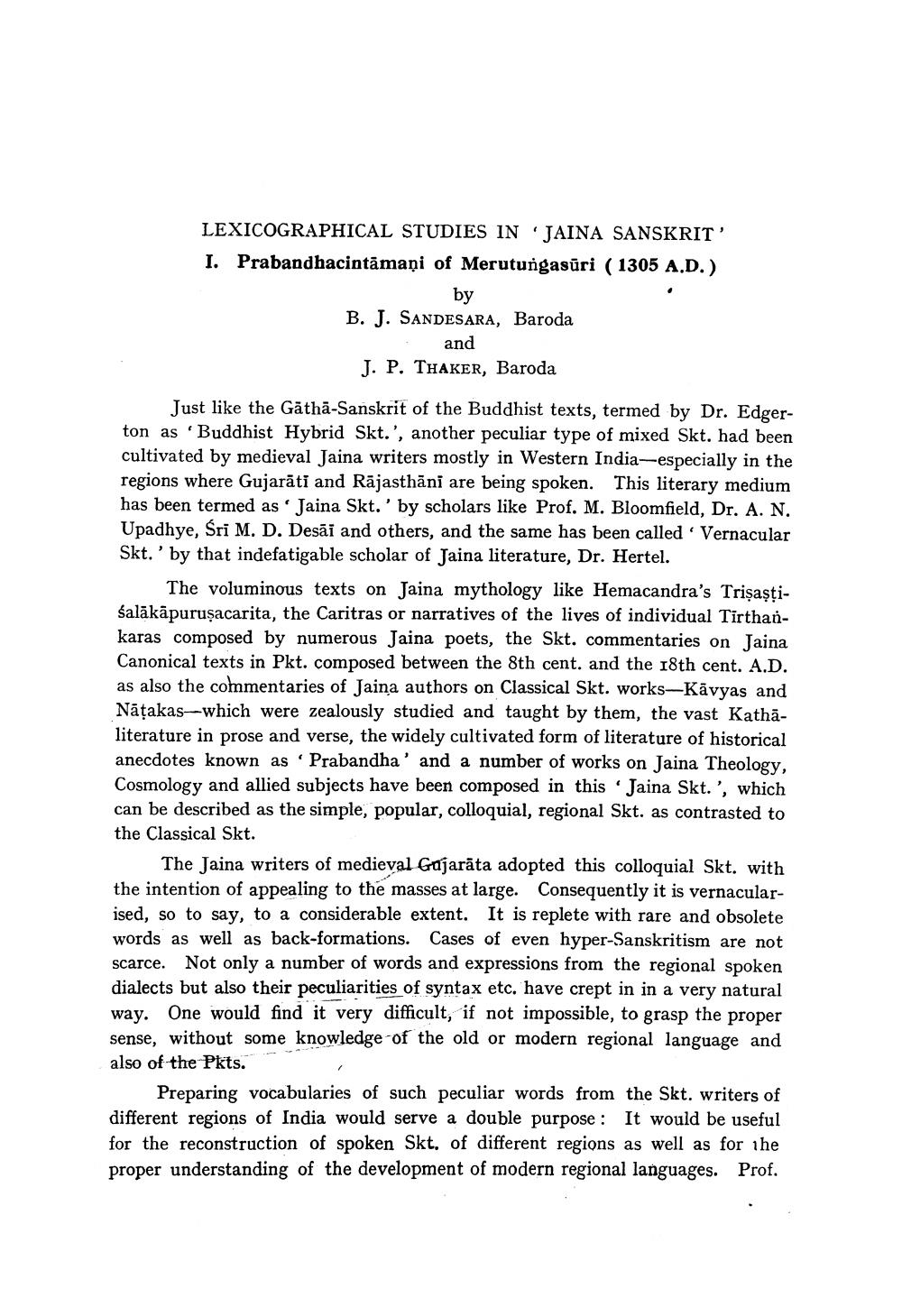Book Title: Lexicographical Studies In Jaina Sanskrit Author(s): B J Sandesara, J P Thaker Publisher: Oriental Institute View full book textPage 7
________________ LEXICOGRAPHICAL STUDIES IN JAINA SANSKRIT' I. Prabandhacintāmaņi of Merutungasūri ( 1305 A.D.) by B. J. SANDESARA, Baroda and J. P. THAKER, Baroda Just like the Gāthā-Sanskrit of the Buddhist texts, termed by Dr. Edgerton as 'Buddhist Hybrid Skt.', another peculiar type of mixed Skt. had been cultivated by medieval Jaina writers mostly in Western India-especially in the regions where Gujarāti and Rājasthāni are being spoken. This literary medium has been termed as Jaina Skt.' by scholars like Prof. M. Bloomfield, Dr. A. N. Upadhye, Sri M. D. Desāi and others, and the same has been called Vernacular Skt.' by that indefatigable scholar of Jaina literature, Dr. Hertel. The voluminous texts on Jaina mythology like Hemacandra's Trișaștiśalākāpuruşacarita, the Caritras or narratives of the lives of individual Tirthankaras composed by numerous Jaina poets, the Skt. commentaries on Jaina Canonical texts in Pkt. composed between the 8th cent. and the 18th cent. A.D. as also the commentaries of Jaina authors on Classical Skt. works-Kavyas and Nāțakas---which were zealously studied and taught by them, the vast Kathāliterature in prose and verse, the widely cultivated form of literature of historical anecdotes known as Prabandha' and a number of works on Jaina Theology, Cosmology and allied subjects have been composed in this .Jaina Skt.', which can be described as the simple, popular, colloquial, regional Skt. as contrasted to the Classical Skt. The Jaina writers of medieval Gasarāta adopted this colloquial Skt. with the intention of appealing to the masses at large. Consequently it is vernacularised, so to say, to a considerable extent. It is replete with rare and obsolete words as well as back-formations. Cases of even hyper-Sanskritism are not scarce. Not only a number of words and expressions from the regional spoken dialects but also their peculiarities of syntax etc. have crept in in a very natural way. One would find it very difficult, if not impossible, to grasp the proper sense, without some knowledge of the old or modern regional language and also of the Pkts. Preparing vocabularies of such peculiar words from the Skt. writers of different regions of India would serve a double purpose: It would be useful for the reconstruction of spoken Skt, of different regions as well as for the proper understanding of the development of modern regional languages. Prof.Page Navigation
1 ... 5 6 7 8 9 10 11 12 13 14 15 16 17 18 19 20 21 22 23 24 25 26 27 28 29 30 31 32 33 34 35 36 37 38 39 40 41 42 43 44 45 46 47 48 49 50 51 52 53 54 55 56 57 58 59 60 61 62 63 64 65 66 67 68 69 70 71 72 ... 248
